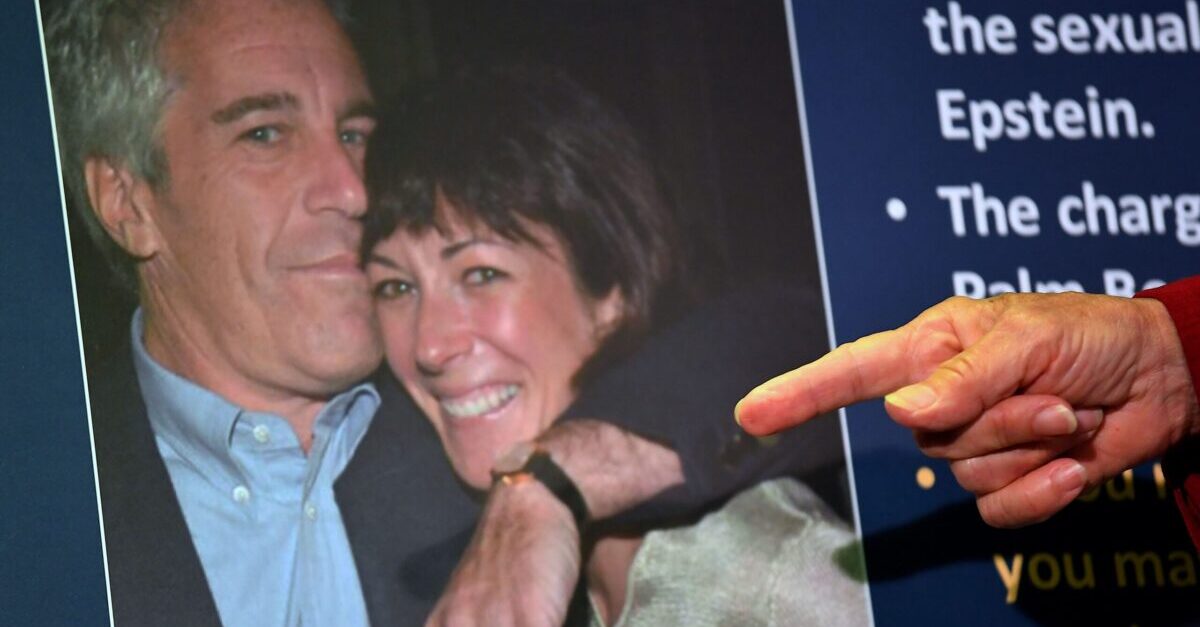
Federal prosecutors urged a judge not to force them to provide Ghislaine Maxwell a complete list of her “uncharged co-conspirators,” arguing that those disclosure risks “harm to the Government from restricting its proof at trial.”
“Although it is not required to do so, the Government can state that—as of the date of this letter, and although the Government may change its view as it prepares for trial—it currently intends to introduce co-conspirator statements at trial from only two individuals,” Assistant U.S. Attorney Alison Moe wrote in a four-page letter on Wednesday.
Maxwell asked to learn their identities earlier, as one of the categories of information her defense team requested to avoid a trial-by-ambush.
“The Government Regrets Any Confusion”
Last week, U.S. District Judge Alison Nathan rejected Maxwell’s request for a bill of particulars, but that ruling pointed out that the government had not specifically responded to Maxwell’s request for co-conspirator names. Prosecutors urged the judge not to mistake their silence on the issue for consent.
“The Government regrets any confusion on this point,” prosecutors wrote in a footnote.
Prosecutor indicate that Maxwell’s upcoming trial in November will not shine a spotlight on many other people accused of aiding and abetting Epstein. Their letter states that they currently only plan to introduce “co-conspirator statements” by “only two individuals”: Epstein himself and an employee who scheduled his “massage” appointments around 2004.
“There is accordingly no significant risk that the defense will be surprised at trial by a profusion of co-conspirators and their statements, even if the government identifies statements for use at trial from additional co-conspirators,” the letter states. “This Court has twice concluded that no bill of particulars is warranted because the defendant has adequate information to prepare for trial and avoid unfair surprise.”
In a recent interview with Law&Crime’s podcast “Objections,” the Miami Herald’s Julie K. Brown—whose reporting has been widely credited with sparking Epstein and Maxwell’s prosecutions—opined that transparency has been getting worse on the dockets. Her public records battles in court led to the release of thousands of pages, which included the names of prominent men allegedly implicated in Epstein’s conspiracy.
Despite that flood of documents, courts remain “under pressure” to keep more files “under wraps and heavily redacted,” Brown said.
“No One Seemed Surprised”
Also on Wednesday, Maxwell’s lawyer Bobbi Sternheim raised a separate concern about her attorney-client communications. She claimed that third parties may have breached their video conference calls from the Metropolitan Detention Center, the federal lockup in Brooklyn, N.Y., where Maxwell is being held before trial.
Earlier this month, Maxwell says, the jail switched the video conferencing program from WebEx to Zoom after the accused sex-trafficker claimed to spot an unidentified party on the line: “NER/BRO.”
“When Ms. Maxwell raised these concerns to various staff members, no one seemed surprised,” Sternheim’s letter states. “The fact that MDC immediately provided a ‘more secure’ link (in their words) suggests there was some type of breach or interference with the attorney-client VTC which impinged upon confidentiality of privileged attorney-client communication and is placing an on-going chill on communication between Ms. Maxwell and her defense team.”
On Aug. 12, Maxwell’s team alleged a separate breach during a Zoom call, but the jail denied it.
“There was a miscommunication on our end internally,” the jail responded a day later, according to Maxwell’s letter. “There was no breach. The address provided was a very secure line, however, it was already one being used.”
Sternheim wants the jail to provide a sworn statement about the incidents.
Read the “co-conspirators” letter below:
[image via JOHANNES EISELE/AFP via Getty Images]